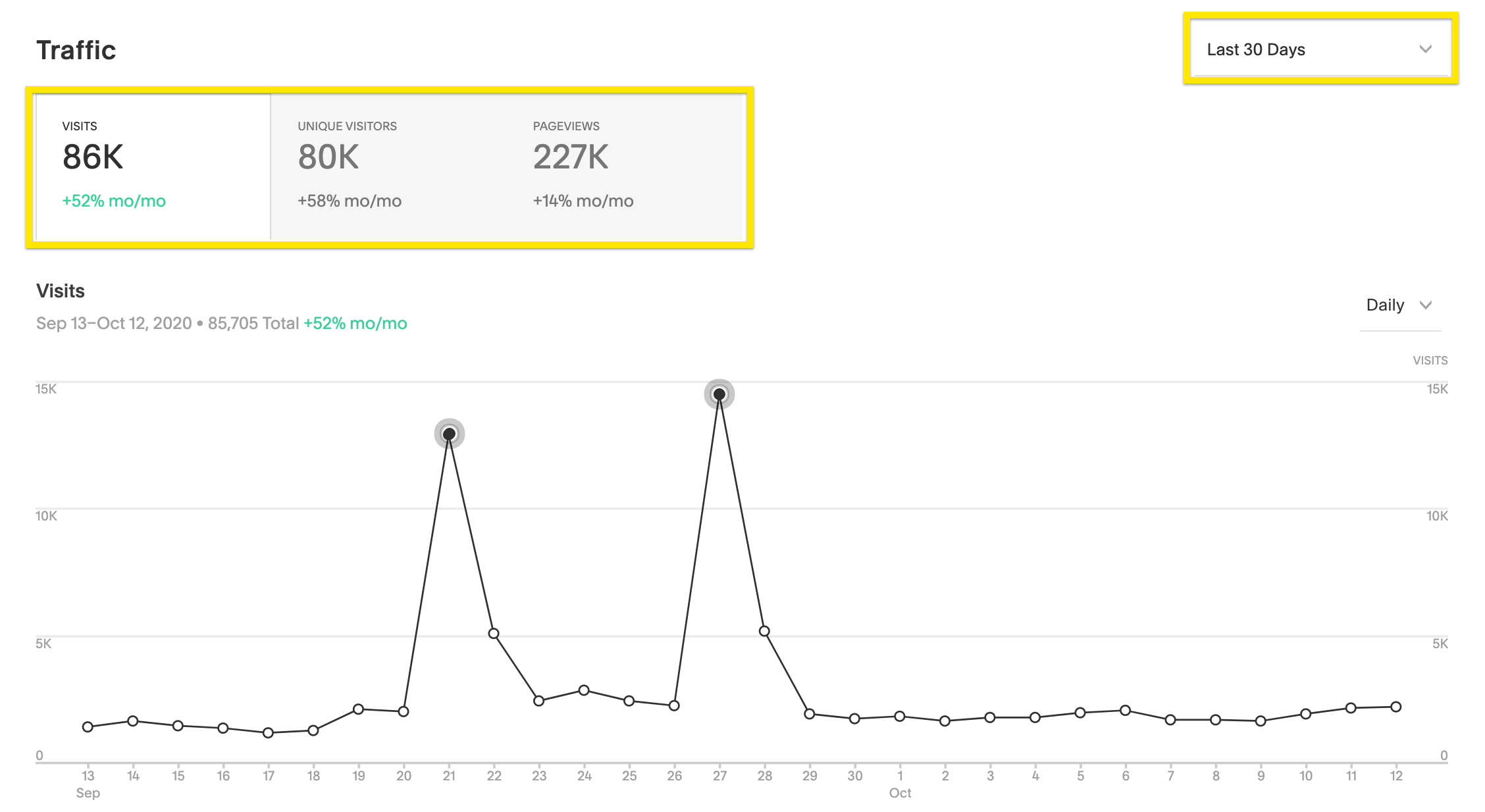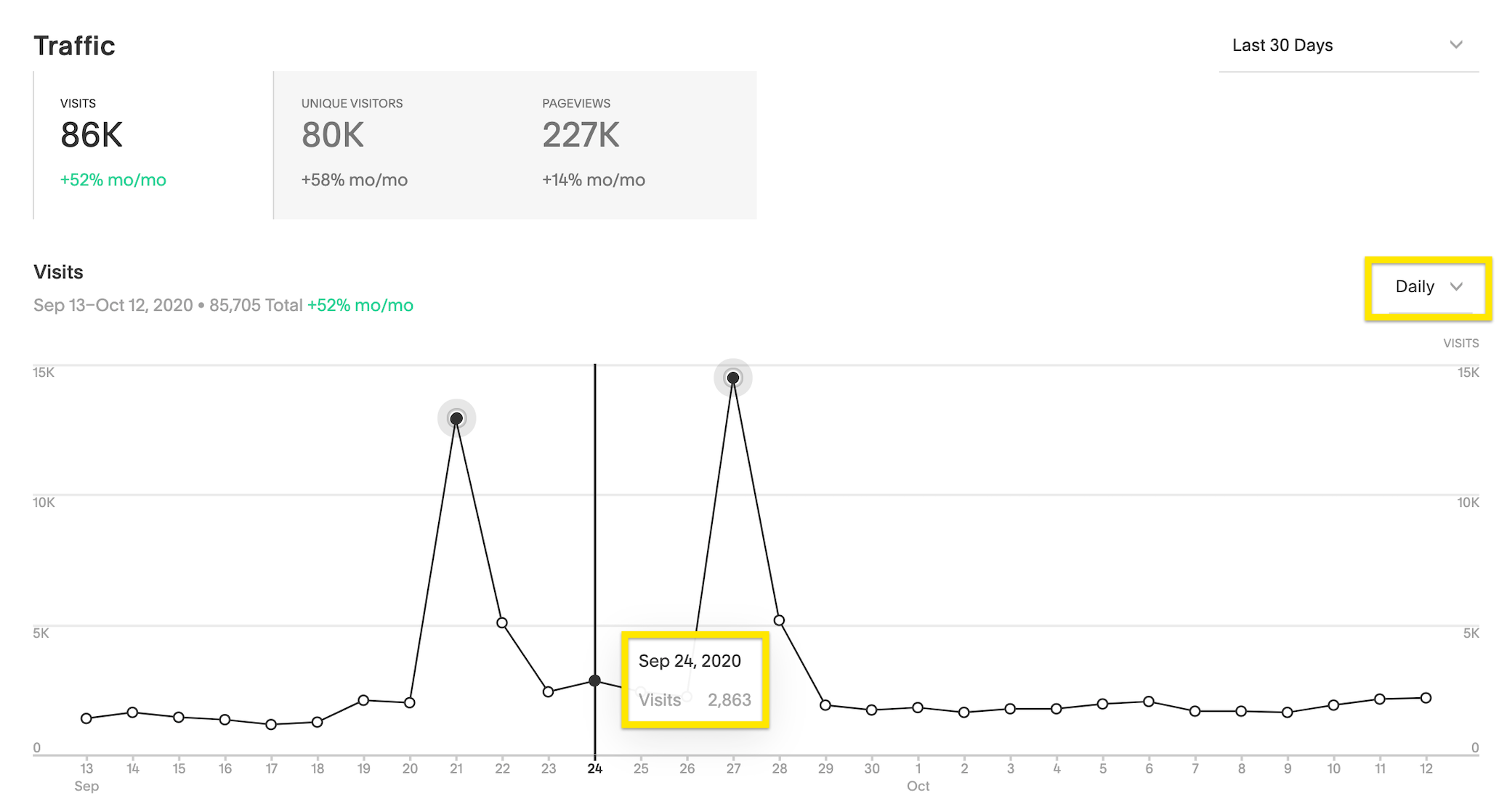
Web Traffic Analytics: Understanding Visits, Views, and Visitor Data
Here's a concise, value-focused rewrite:
Analytics traffic data helps you understand your site's performance through three key metrics: visits, page views, and unique visitors. This guide explains how to interpret these metrics and use them effectively.
Understanding Key Traffic Metrics
Unique Visitors
- Represents total individual visitors to your site
- Tracked via two-year browser cookies
- Best metric for measuring loyal audience size
- Note: New cookies are created when visitors clear browsers or use different devices
Visits
- Represents unique browsing sessions (can include multiple page views)
- Tracked via 30-minute browser cookies
- Sessions end at midnight or after 30 minutes of inactivity
- Ideal for measuring site engagement
Page Views
- Counts total page requests
- Includes non-linked pages, collection items, and password-protected content
- Excludes image requests, scripts, and 404 error pages

Online web traffic chart
Using the Traffic Panel
- Access traffic data by opening Analytics and selecting "Traffic"
- Filter results using the date range dropdown (data available from January 2014)
- Toggle between metrics (Unique visitors, Visits, or Page views)
- Monitor percentage changes across different time periods
- Check traffic alerts via the "!" icons

Line graph with yellow rectangle
Advanced Analytics Features
Index Page Views (v7.0):
- Subpages accessed from main index count toward index page views
- Direct subpage URL visits count as individual page views
Traffic Breakdown Charts (Visits only):
- Device type distribution (mobile, desktop, tablet)
- Traffic sources
- Browser usage
- Operating system data
Important Note: Chrome's "Do Not Track" Option
- When enabled, each page view registers as a new visitor
- May inflate some metrics, particularly direct traffic
- Total page view counts remain accurate
By monitoring these metrics regularly, you can better understand your audience's behavior and make informed decisions about your site's content and structure.
Related Articles

Traffic Anomaly Detection & Reporting: Monitor Website Volume Changes

